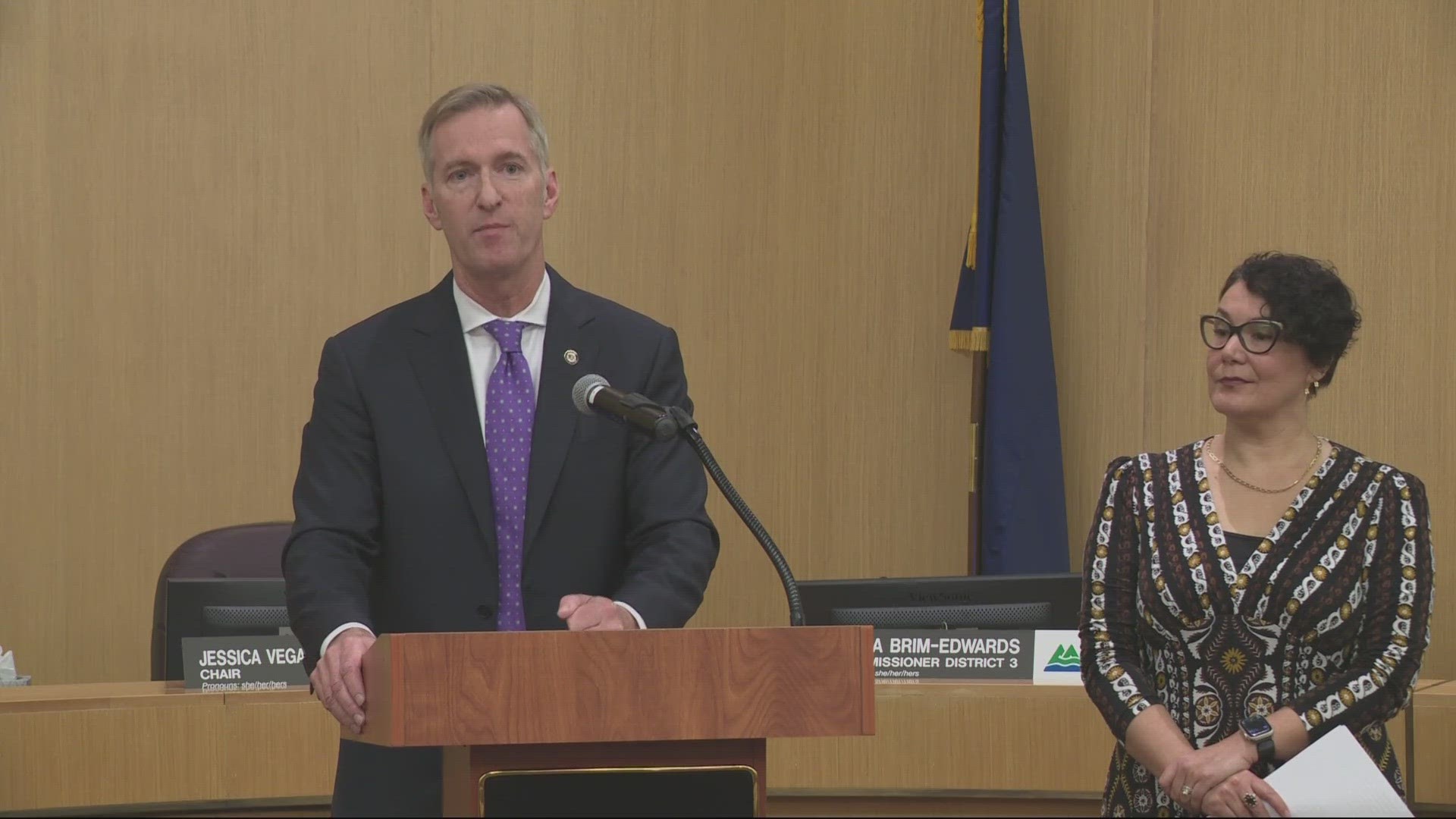PORTLAND, Ore. — Rather than scuttle a troubled eight-year joint effort to combat homelessness between Portland and Multnomah County, local elected leaders unveiled their concept on Wednesday for a three-year extension that they hope will get things on the right track.
The plan presented by Mayor Ted Wheeler and County Chair Jessica Vega Pederson would set the conditions for a three-year extension of the Joint Office of Homeless Services — the embattled county-helmed agency that combines funding from both governments to manage an overall response to homelessness.
Members of both the Portland City Council and the Multnomah County Board of Commissioners have expressed their displeasure with JOHS' performance in recent years, and two separate audits over the summer slammed the joint office for an apparent lack of clear strategy, vision or measurable outcomes, among other concerns.
The new framework appears tailor-made to address some of those criticisms by pledging to build in greater transparency and cooperation, as well as distinct objectives.
"The proposal that we're sharing with our commissioners turns the page on a relationship that has been fraught with misunderstanding and mistrust, and worst of all a system that is not as effective as it should be," Vega Pederson said.
Under the plan, JOHS would have new and lofty performance goals to meet within the next two years.
Though Multnomah County participates every year in the federally mandated Point-in-Time count of homeless residents, the framework calls for a separate effort to identify the "baseline" number of people experiencing unsheltered homelessness as of January 2024. A major goal of the three-year plan would be to shelter or re-house 50% of that baseline number by the end of December 2025, though it notes that additional people will inevitably become homeless within that time span.
It would also call for a 15% increase in the number of people who transition from shelter into permanent housing by the end of 2025, and set a goal that at least 75% of people rehoused into permanent supportive housing retain that housing two years after placement.
"Let's not kid ourselves, none of this will be easy — but we are far more likely to see success when we work together," Wheeler said.
RELATED: Lost in translation: Audit finds Multnomah County's budget tracking is hard for the public to parse
The agreement would require that joint office issue quarterly updates on its work, sharing publicly how much is being spent and where it's going. It would also require that the city and county collaborate on the overall JOHS budget, though the Multnomah County Board of Commissioners and the Portland City Council will still decide independently how much they're going to contribute to the joint venture.
Eventually, the goal would be to move the homeless shelters that Portland currently operates, including the Safe Rest Villages and the newer mass sanctioned camps, under the JOHS umbrella.
To cap the whole framework, it would require the formation of a new oversight committee called the Homelessness Response System to create goals and overall strategies for the joint office. It would be a more expansive successor to the "A Home for Everyone" campaign, which quietly vanished in 2022 in favor of a constellation of community advisory committees.
A statement from Wheeler and Vega Pederson on Wednesday quoted Gov. Tina Kotek and Mindy Stadtlander, CEO of Health Share of Oregon, as being in support of the agreement. However, it will ultimately be the full Portland City Council and Multnomah County Board of Commissioners that must approve the plan by agreeing to a new contract next year.
Over $1 billion has been poured into JOHS since it was first formed in 2016, and it's been the primary destination for taxpayer dollars raised from the Supportive Housing Services tax since 2020. Into October of this year, Multnomah County publicly struggled to allocate tens of millions of dollars meant for homeless services, much of it raised from the SHS tax.
The current JOHS contract between Portland and Multnomah County expires in six months.

